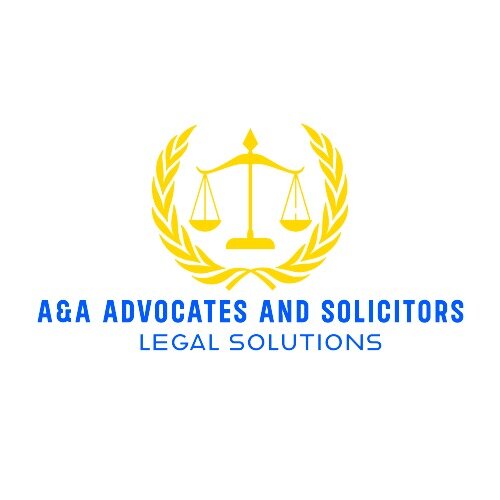Best Biotechnology Lawyers in Ghana
Share your needs with us, get contacted by law firms.
Free. Takes 2 min.
Or refine your search by selecting a city:
List of the best lawyers in Ghana
About Biotechnology Law in Ghana
Biotechnology is a rapidly evolving field that involves the use of biological systems and living organisms to develop new products and technologies. In Ghana, biotechnology is gaining momentum in agriculture, pharmaceuticals, and healthcare sectors. As the field grows, the need for legal guidance and regulation becomes essential to ensure ethical and safe practices.
Why You May Need a Lawyer
There are several situations where you may require legal assistance in the field of biotechnology in Ghana:
- Drafting or reviewing contracts for research and development agreements
- Intellectual property protection for biotechnological inventions
- Compliance with regulations and licensing requirements
- Resolving disputes related to patents, licenses, or contracts
- Handling environmental issues related to biotechnological activities
Local Laws Overview
Ghana has enacted laws and regulations to govern biotechnological activities in the country. The key aspects of local laws that are particularly relevant to biotechnology in Ghana include:
- The Biosafety Act, 2011 (Act 831)
- The Plant Breeders' Rights Act, 2020 (Act 1058)
- The Food and Drugs Authority Act, 2012 (Act 851)
- The Intellectual Property Act, 2003 (Act 566)
Frequently Asked Questions
Q: How are biotechnological activities regulated in Ghana?
A: Biotechnological activities in Ghana are regulated by the National Biosafety Authority, which oversees the implementation of the Biosafety Act, 2011.
Q: What are the requirements for obtaining a biotechnology license in Ghana?
A: To obtain a biotechnology license in Ghana, applicants must submit detailed information on the proposed biotechnological activity, undergo a risk assessment, and comply with biosafety protocols.
Q: How can I protect my biotechnological inventions in Ghana?
A: Biotechnological inventions can be protected through patents, trademarks, and copyrights under the Intellectual Property Act, 2003.
Q: What are the penalties for non-compliance with biotechnology regulations in Ghana?
A: Non-compliance with biotechnology regulations in Ghana can result in fines, imprisonment, revocation of licenses, and other administrative sanctions.
Additional Resources
For additional resources and information on biotechnology in Ghana, you can contact the National Biosafety Authority, the Plant Breeders' Rights Office, and the Food and Drugs Authority.
Next Steps
If you need legal assistance in the field of biotechnology in Ghana, it is advisable to consult with a qualified lawyer who specializes in biotechnology laws and regulations. They can provide guidance on compliance, licensing, intellectual property protection, and resolving legal disputes related to biotechnological activities.
Lawzana helps you find the best lawyers and law firms in Ghana through a curated and pre-screened list of qualified legal professionals. Our platform offers rankings and detailed profiles of attorneys and law firms, allowing you to compare based on practice areas, including Biotechnology, experience, and client feedback.
Each profile includes a description of the firm's areas of practice, client reviews, team members and partners, year of establishment, spoken languages, office locations, contact information, social media presence, and any published articles or resources. Most firms on our platform speak English and are experienced in both local and international legal matters.
Get a quote from top-rated law firms in Ghana — quickly, securely, and without unnecessary hassle.
Disclaimer:
The information provided on this page is for general informational purposes only and does not constitute legal advice. While we strive to ensure the accuracy and relevance of the content, legal information may change over time, and interpretations of the law can vary. You should always consult with a qualified legal professional for advice specific to your situation.
We disclaim all liability for actions taken or not taken based on the content of this page. If you believe any information is incorrect or outdated, please contact us, and we will review and update it where appropriate.
Browse biotechnology law firms by city in Ghana
Refine your search by selecting a city.








